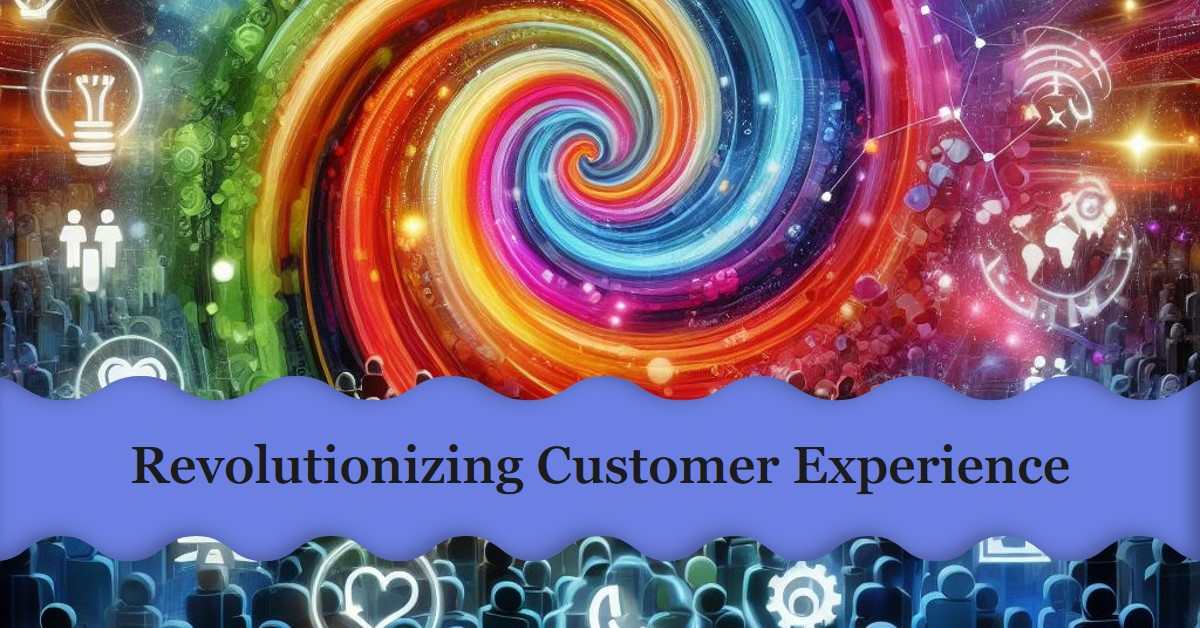
Customer Experience Revolution: Traversing Through the Pandemic and Further
Zia Khan
- 0
In the wake of the COVID-19 pandemic, businesses worldwide faced an unprecedented challenge: how to accommodate the fleeting nature of consumer interests and needs, as well as implement safety and consistency standards. Pandemic demonstrated the key role of customer needs understanding and meeting but speeded up the escalation of customer experience (CX) revolution. This article takes a deeper dive into the dynamic customer experience landscape, examining the pandemic-induced changes and strategies for businesses to continue thriving in this new era.
Table of Contents
ToggleUnderstanding the Roots of Customer Experience
Fundamentally, customer experience (CX) incorporates all interactions that a customer has with a brand, including the very first contacts and post-sale support services. It moves beyond a transactional approach by building long-term relations and focusing on total customer satisfaction. Briefly speaking, CX is the concept of adding value at every contact point, which leads to brand loyalty and advocacy as a result.
The COVID-19 Pandemic: Engine for Change
The COVID-19 pandemic introduced a “new normal” that was characterised by radical changes in consumer preferences and expectations. There is indeed online shopping enhancement as well as a growth in emphasis on safety and convenience in businesses that was brought by the pandemic. Despite the uncertainties that surrounded lockdowns and social distancing measures, businesses were forced to innovate and adjust fast to keep up with the mutable customer behaviour.
The Age of Digital Transformation
One of the major impacts of the pandemic was digital acceleration in many industries. Due to the closure of physical stores and the decline in pedestrians, businesses were forced to shift towards online platforms in order to keep their operation running. Online stores experienced an increase in sales that has never been before, one of the factors that show the need to create a solid online presence. From frictionless payments to virtual consultations, companies applied digital technologies to open the door to smooth and convenient experiences for their customers.
But digital transformation is also beyond copying offline experiences online. It is about leveraging technology to reimagine and to upgrade the customer journey. Personalization, artificial intelligence recommendations and immersive virtual experiences are believed to be the drivers of customer engagement in the digital world.
Embracing Social Responsibility
Social responsibility and the ethics of brands are now more prevalent than ever as the chaos of the pandemic leads people to purchase products from companies that stand for these principles. Eco-friendliness, active engagement with the community, and the quality of work life are some indispensable points that consumers consider seriously before deciding which companies to choose. Brands which were coherent with the societies and endeavoured to address the most profound societal values got credibility and support from their loyal consumers.
In addition, social responsibility exceeds the range of philanthropy and the word itself implies truth, genuineness, and openness in all spheres of business. Social responsibility’s way of functioning becomes a direct reflection of a company’s culture which will, on the one hand, improve the brand image but also develop a stronger link with clients who relate to the same values.
Formidable Smart Management is the necessity.

Pandemics have dramatically demonstrated that the management being flexible along with adaptability is significant in tackling toughest situations. Regardless of disruptions in business operations, it was companies that gang up on smart management principles that were equipped enough to tackle unavoidable challenges and soon, they would grab the best opportunities. Virtual work, digital collaboration applications, and data-driven decision making became central parts of flexible and crisis-proof businesses.
Besides, the topic “smart offices” came more into the focus of the minds of different firms as they appreciated safety and by doing that they tried to create comfortable workplaces for their employees. Smart offices emphasise the IoT enabled sensors, AI-powered analytics, and automation, which, best of it all, optimise workflow, heighten productivity, and finally around the employee wellbeing. In addition to considering smart management as a prerequisite for business’s adaptation and survival, it also marks an organisation’s culture change toward being innovative and agile.
Evolving Towards Omni Channel Communication

In a period where we increasingly connect people in this way and receive what we want right away, good communication should be the centre of delivering quality customer experiences. Multi Channelled communication, which unites several contact points online and offline, currently is the key factor for a business pursuing the goal to interact more with clients on their conditions.
The multiplication of social networks and messengers undeniably changed the interaction between customers and brands, hence, a shift to the comprehensive and high-level communication approaches is a must. Wading omnichannel approaches, the companies manage to provide identical messaging, product recommendations, and smooth transactions throughout these touchpoints that likely would impact favorably not only on the willingness to buy but also loyalty and customer satisfaction.
Looking Ahead: Transforming Fast – Transformational speed serves today’s demanding consumer who expects changing product life cycles, reliability, speed, provision of many options, fast delivery, and low cost among other service attributes.
As businesses navigate the post-pandemic landscape, one thing remains clear: change keeps its word. The customer experience revolution currently goes on and its path is by no means stable. It is a challenging task to observe emerging trends and keep up with technological improvements in real-time. Social responsibility, smart management, and digital transformation are the keys to the success of any business. Through the implementation of omnichannel communication, an organisation can position itself as a market leader no matter what challenges it may face.
Conclusion
The customer experience revolution is not just an evolutionary process that will result in the radical reorganisation of how the business interacts with the customers. Through the customer-centric approach, innovations, and the interactions that matter most, companies will not only get to withstand, but ultimately make it, in today’s fast-changing environment. According to the saying, “in a change, you either adapt or die; the time to adopt innovation and transform customers’ practice is right now.
FAQs
What is customer experience (CX) and how it is unique to different companies, for example, How companies interact with their customers and shape the customer’s perception.
CX (Customer experience) is related to all interactions that a customer has with a brand and mainly with a view to creating repeated business associate relations and going beyond a single transaction for the sake of complete quality and satisfaction of customer. Because of the fact that it results in customer loyalty, advocacy and in the end business prosperity, it should be considered vital.
The covid-19 pandemic changed customer experience to what extent is questionable.
With this unprecedented situation, consumers are demanding more online, safety and comfort, to give an example. In order to stay afloat, businesses resorted to an immediate and creative way of working with consumers visiting in fewer numbers at least, while still being able to serve them during lockdowns and social distancing policies.
What part did the digital transformation era play in the partial uprising of customer experience during the global pandemic?
The pandemic has intensified the digitization process through various types of enterprises as they transfer to online platforms, particularly for their production. Coming all the way to the online presence up to integrating AI and virtual experience technologies in the customer journey is just the beginning. Companies redesigned customer experience in order to offer hassle-free convenient journeys.
What are the two parts which are connected to the customer experience revolution related to social responsibility?
Social responsibility is the most significant thing now, so people take it to account when making choices. The companies which made a name for themselves by being eco-friendly, engaging with community and having dedication to their workers became credible and supported. Nowadays, all the effort to be socially responsible illustrates the company values and culture and, this way, helps the company gain the consumer’s favour.
This is the question I intend to explore in this article through a well-researched analysis of smart management and the necessity of such for businesses in the present landscape?
Effective management incorporates the ability to change, flexibility, adaptability and utilisation of technology (technical communication) in order to deal with emerging challenges and take the advantage of new opportunities. It implies the utilisation of various online workspace, joint work, and data-driven rules and procedures. Smart management leads to smart offices principles being incorporated, which entail making workplaces look where safety and comfort is focused on.

